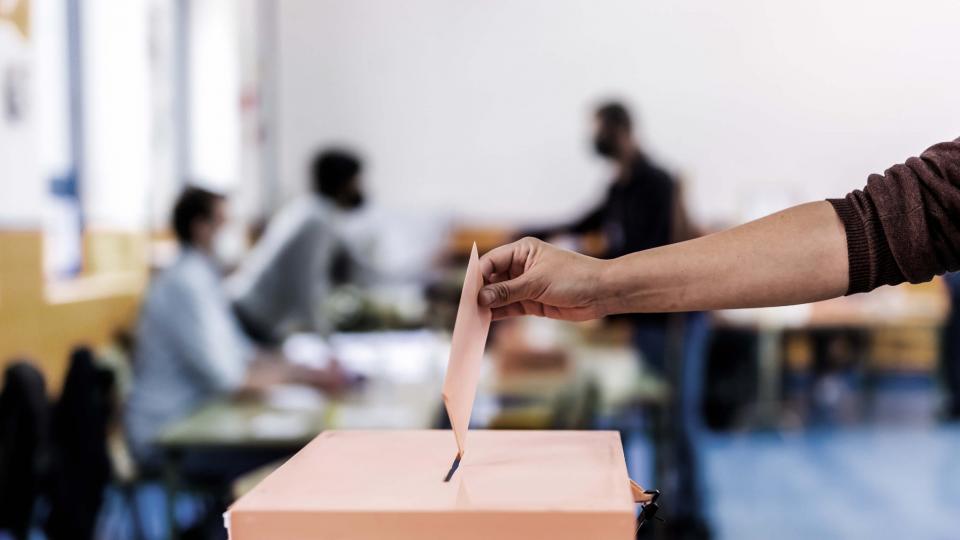The information on this page is for people who have a felony conviction.
If you have a felony conviction, your voting rights may be restored. It depends on your state or territory laws and the details of your sentence. Contact your lawyer or court representative to confirm that you have completed your sentence and met the conditions of your release. You can also contact a local advocacy group that works with formerly incarcerated people. They often have lawyers available to help.
The Department of Justice’s (DOJ) Guide to State Voting Rules After a Criminal Conviction can help you understand your voting rights. The DOJ guide gives state-by-state information about specific crimes and other factors, such as probation and parole, that can affect your right to vote. The DOJ guide also includes information for people who have a conviction other than a felony, such as a misdemeanor or arrest.
Registering to vote before you are eligible to vote can result in criminal prosecution.
General guidance by state and territory
Every state and territory has different laws about voting after a felony conviction. Here you will find general guidance about your ability to vote after prison. There may be extra steps you need to take based on your conviction, felony offense, and other details specific to your scenario.
Your right to vote is not affected by a criminal conviction in these states and territories
- Maine
- Vermont
- District of Columbia
- Puerto Rico
You can even vote while you’re serving a prison sentence. Find out how to register if you live in one of these states or territories.
You are eligible to vote immediately after you have been released from prison in these states and territories
- California
- Colorado
- Connecticut
- Guam
- Hawaii
- Illinois
- Indiana
- Maryland
- Massachusetts
- Michigan
- Minnesota
- Montana
- Nevada
- New Hampshire
- New Jersey
- New York
- New Mexico
- North Dakota
- Ohio
- Oregon
- Pennsylvania
- Rhode Island
- Utah
- Washington
You will get your voting rights back, even if you are on probation or parole, or if you owe any money, including: fines, fees, costs, or restitution.
You are eligible to vote after you’ve fully completed any parole or probation in these states and territories
- Alaska
- American Samoa
- Idaho
- Kansas
- Louisiana
- Missouri
- North Carolina
- Northern Mariana Islands
- Oklahoma
- South Carolina
- South Dakota
- Texas
- U.S. Virgin Islands
- West Virginia
- Wisconsin
You will get your voting rights back after you’re released from prison and complete any parole or probation. In Louisiana, you may also be eligible to vote while on probation or if you have been on parole for over five years.
You may or may not be eligible to vote after you’ve fully completed your sentence in these states
- Alabama
- Arizona
- Arkansas
- Delaware
- Florida
- Georgia
- Iowa
- Kentucky
- Mississippi
- Nebraska
- Tennessee
- Virginia
- Wyoming
You may or may not get your voting rights back after you’ve been released from prison and you’ve fully completed your sentence. This means you need to complete conditions of your release, including parole, probation, and/or payment of any money you owe, including: fines, fees, costs, or restitution. If you’re not sure if you still owe any money, contact your attorney, the public defender’s office in the county where you were sentenced, or the county court.
Depending on your state and the details of your conviction, you may:
- Be eligible to vote after you have completed your sentence
- Have to apply to get your voting rights restored
- Never be allowed to vote again
State and territory laws can change
Check for updates on voting rights. You can also contact your state or local election office for the most current information. Last updated on March 22, 2024.
How to register to vote
Once you confirm you’re eligible to vote, you can register. Even if you’ve registered in the past, you likely need to update your registration with your latest information, including your mailing address. Learn more about your options to register and vote.
